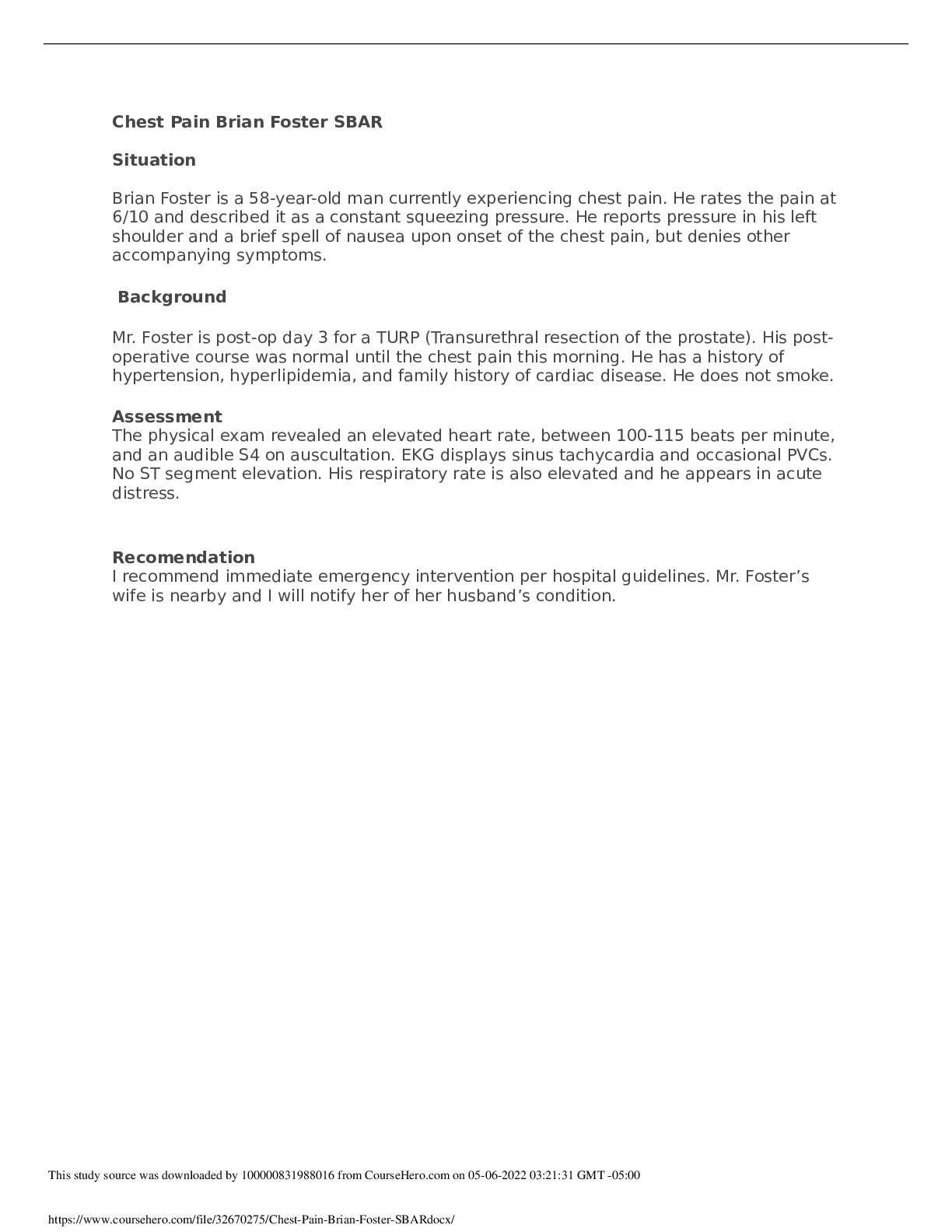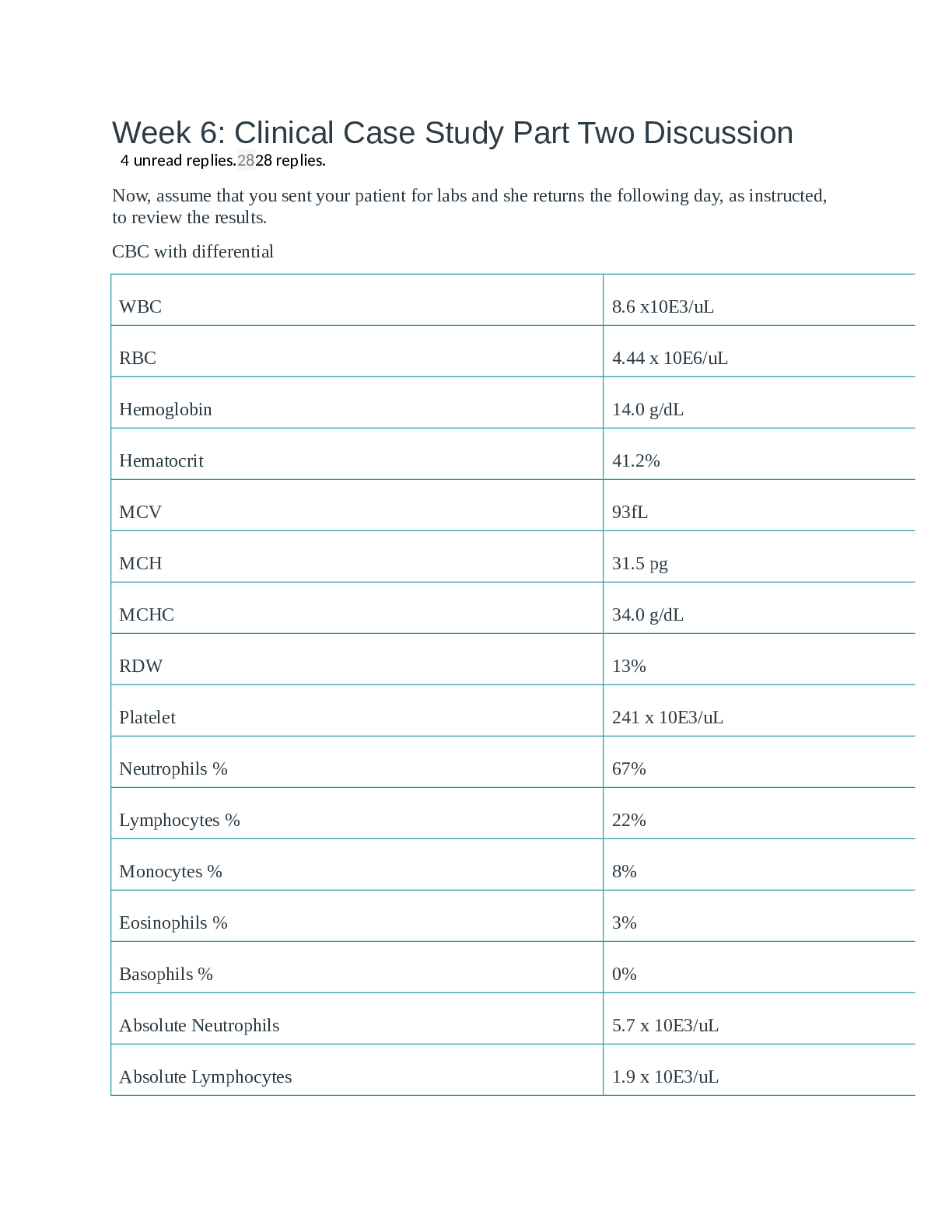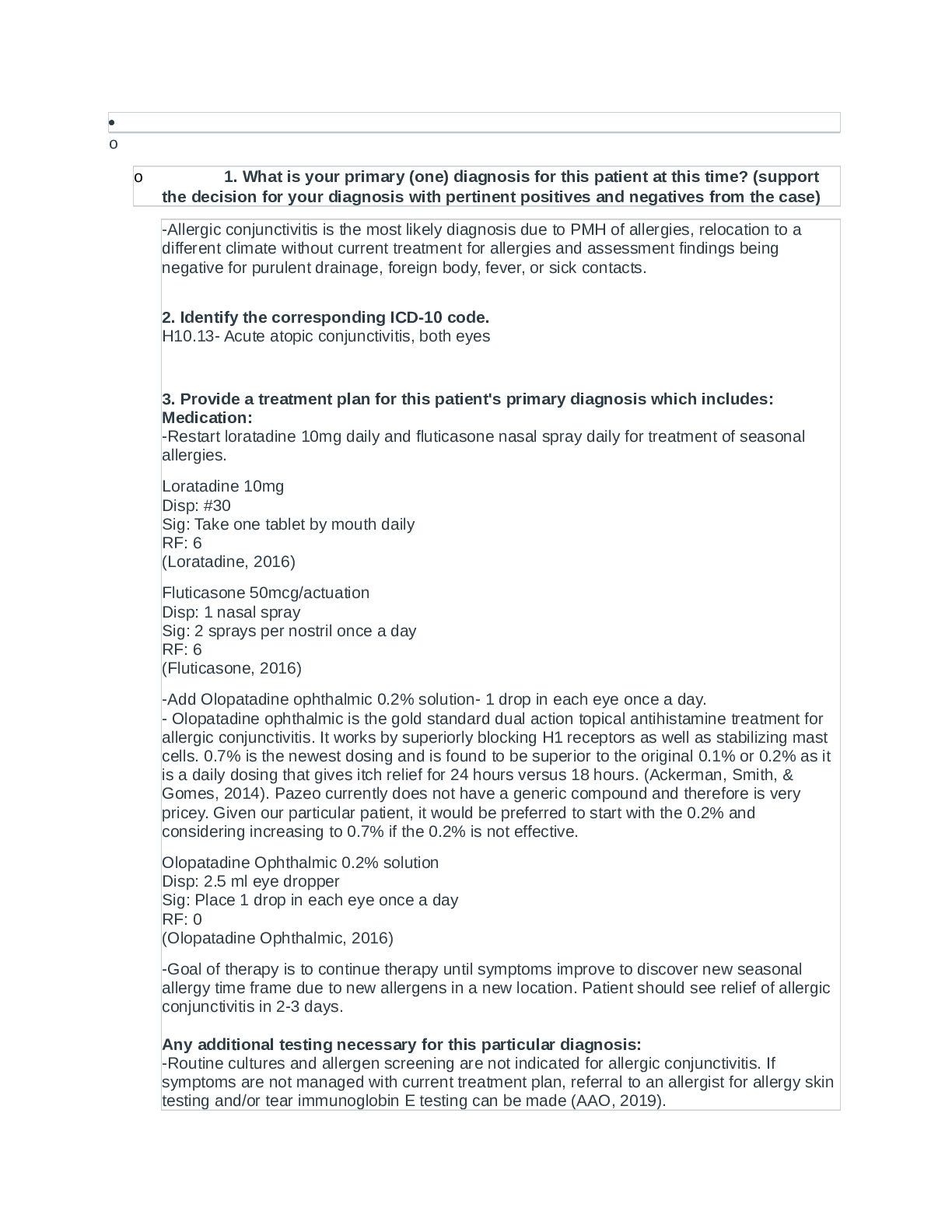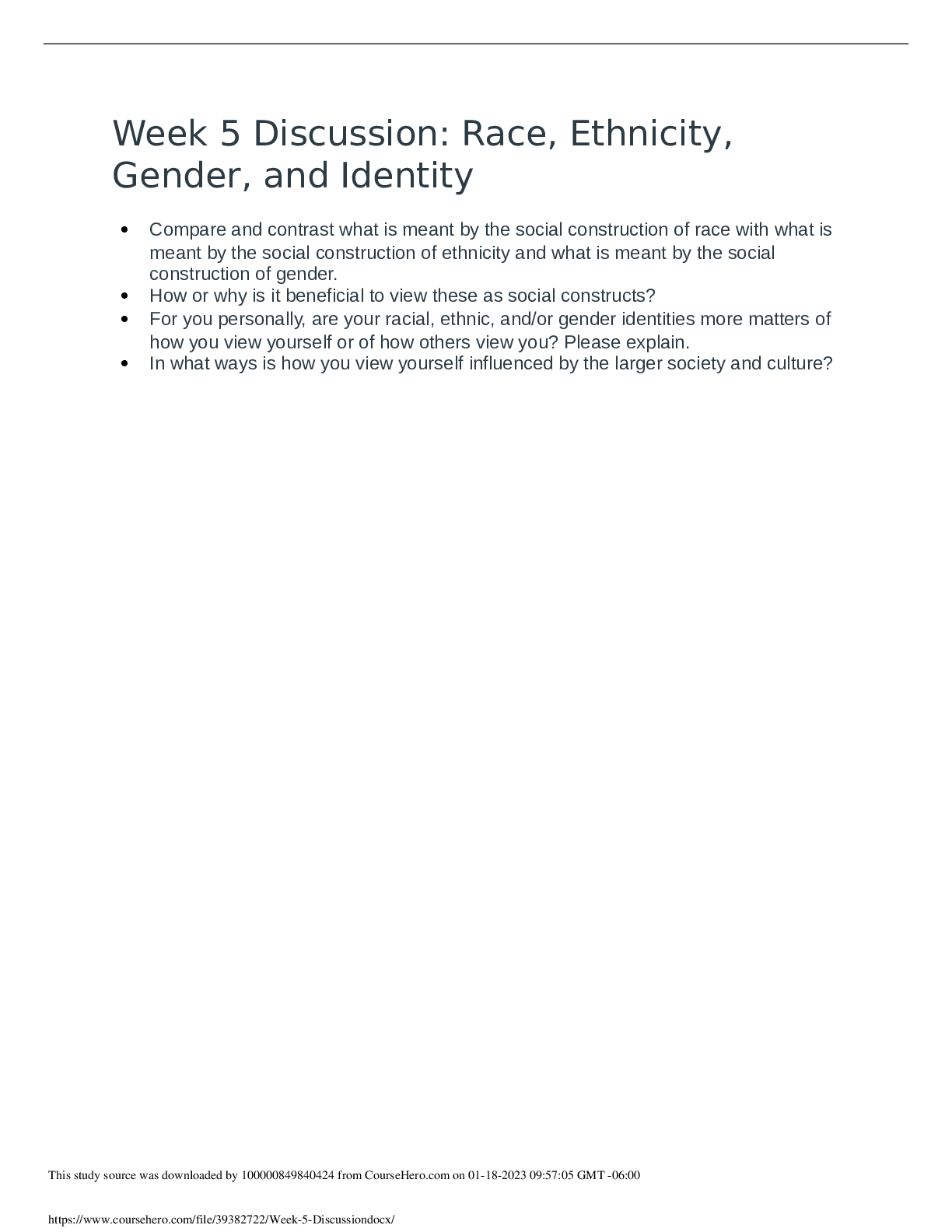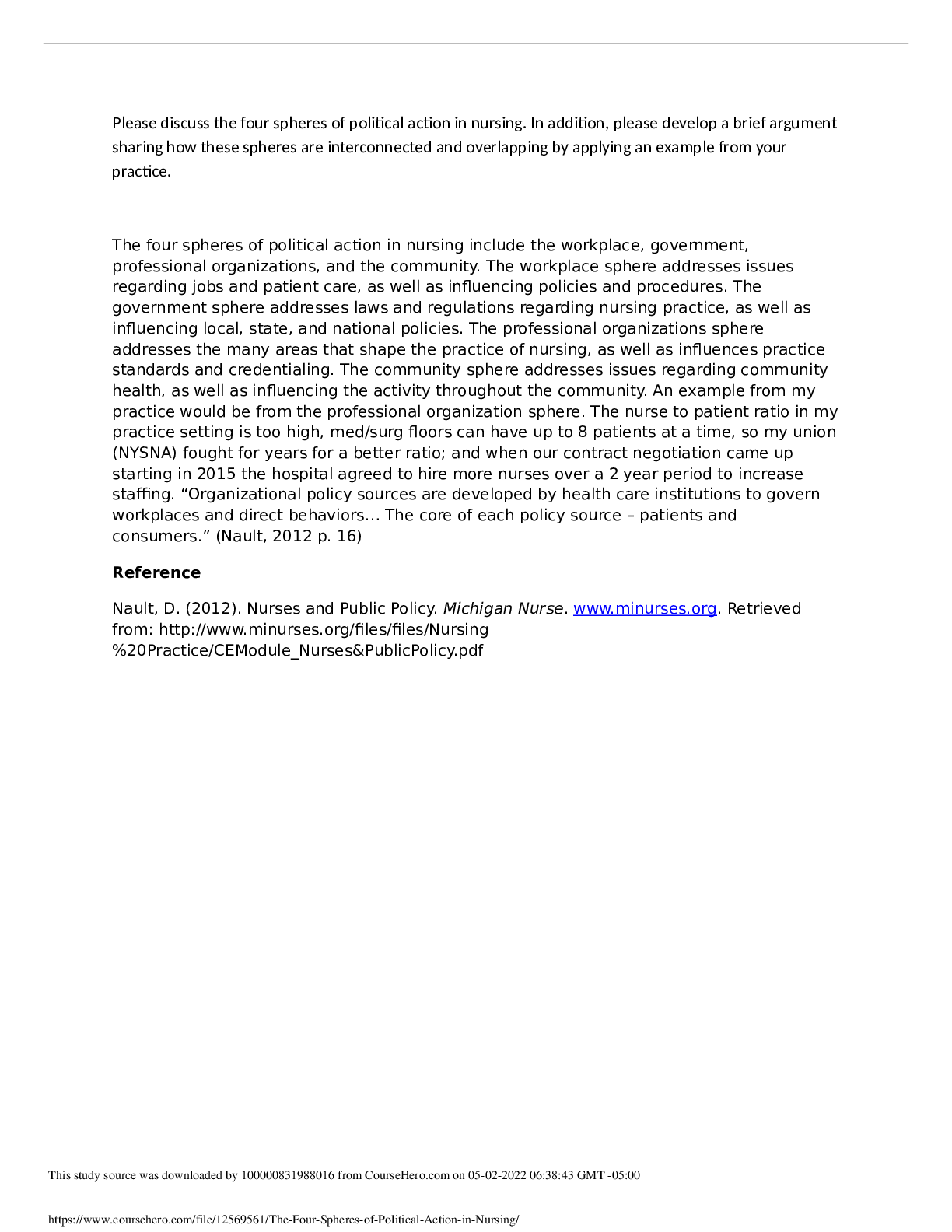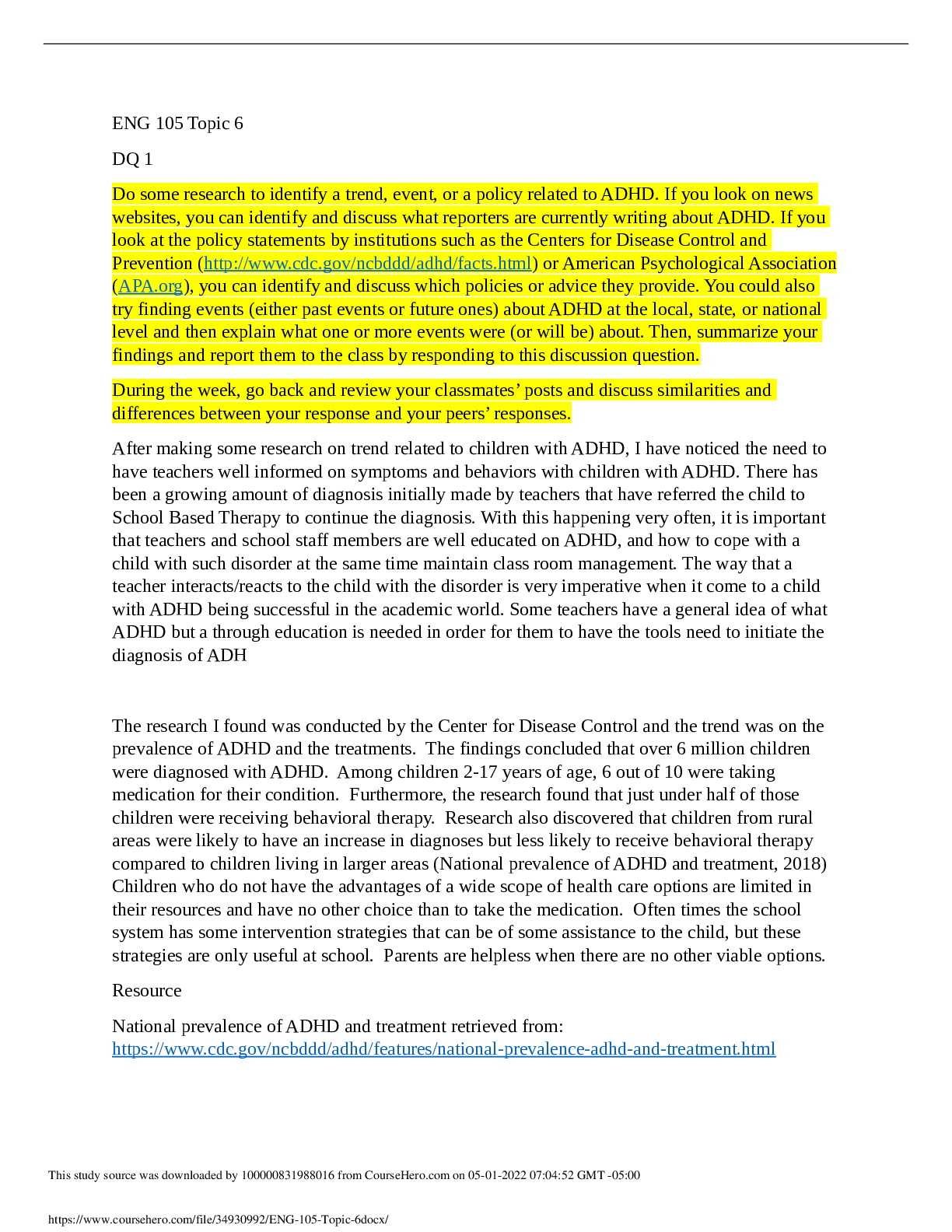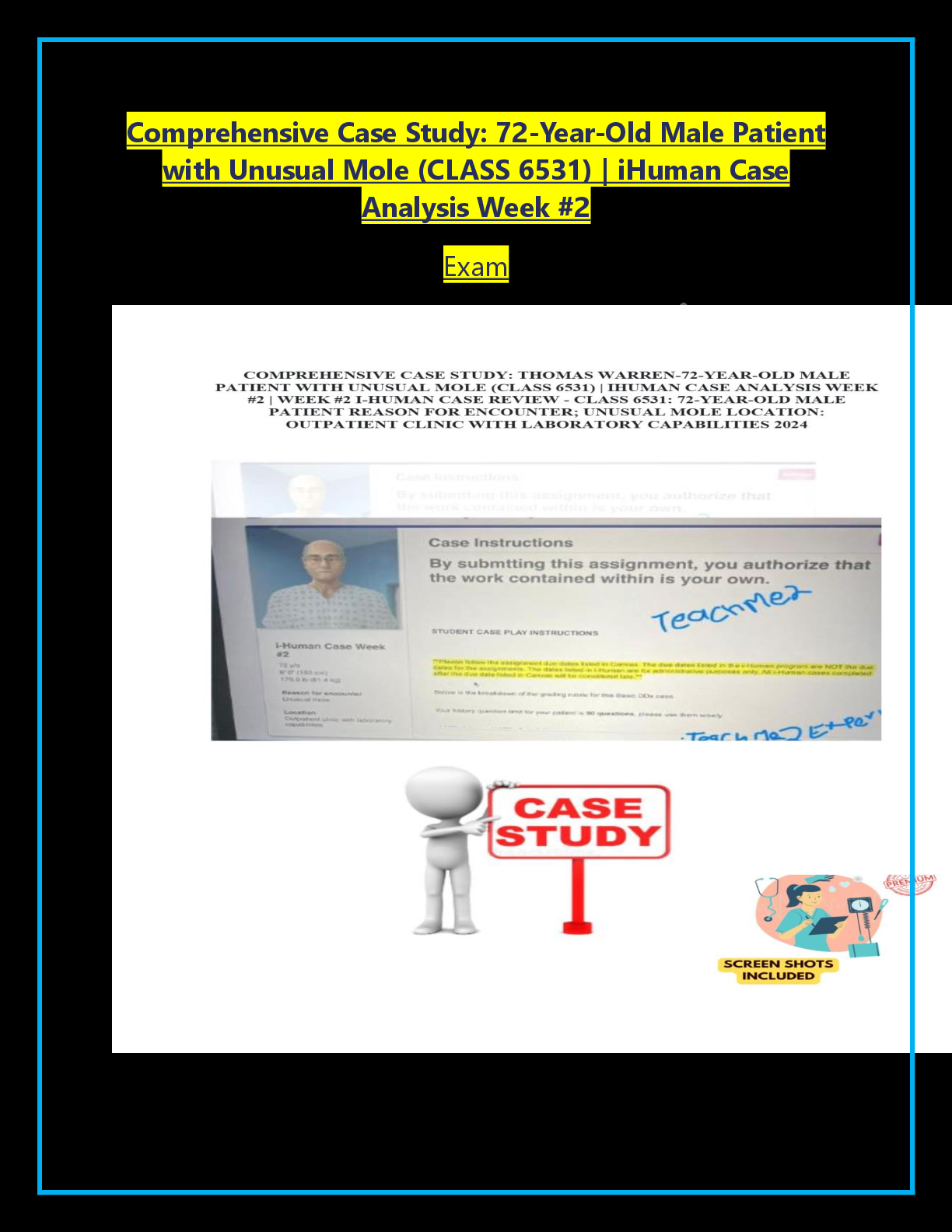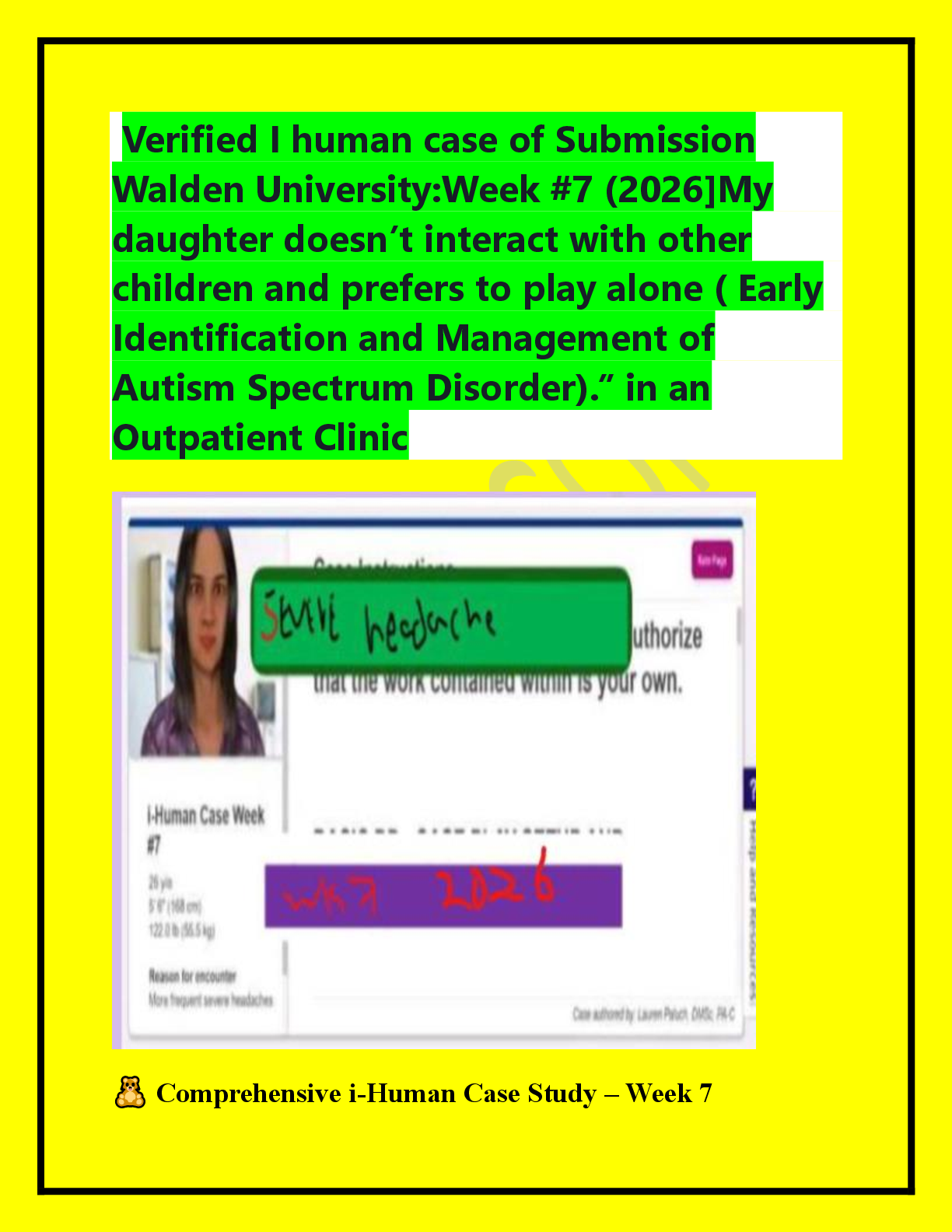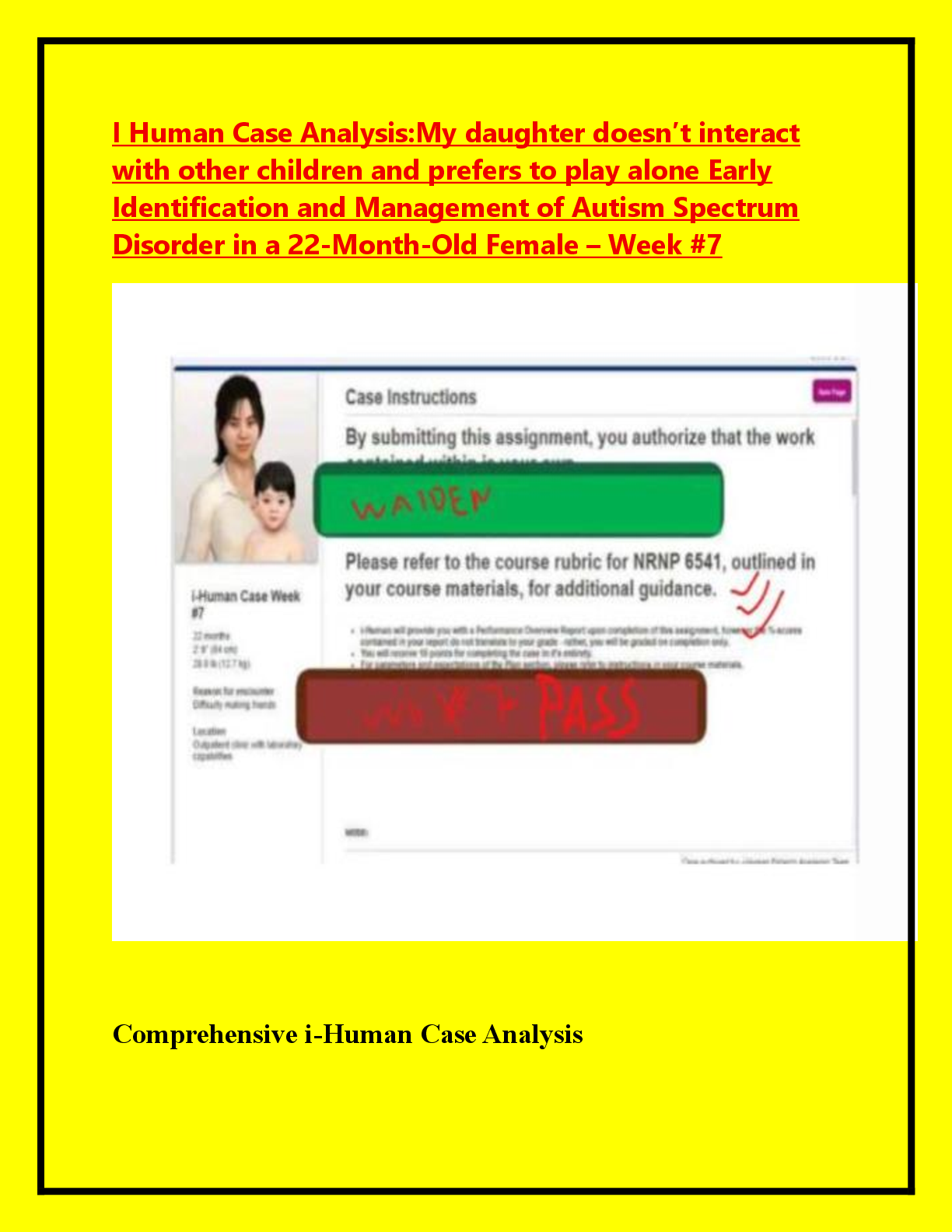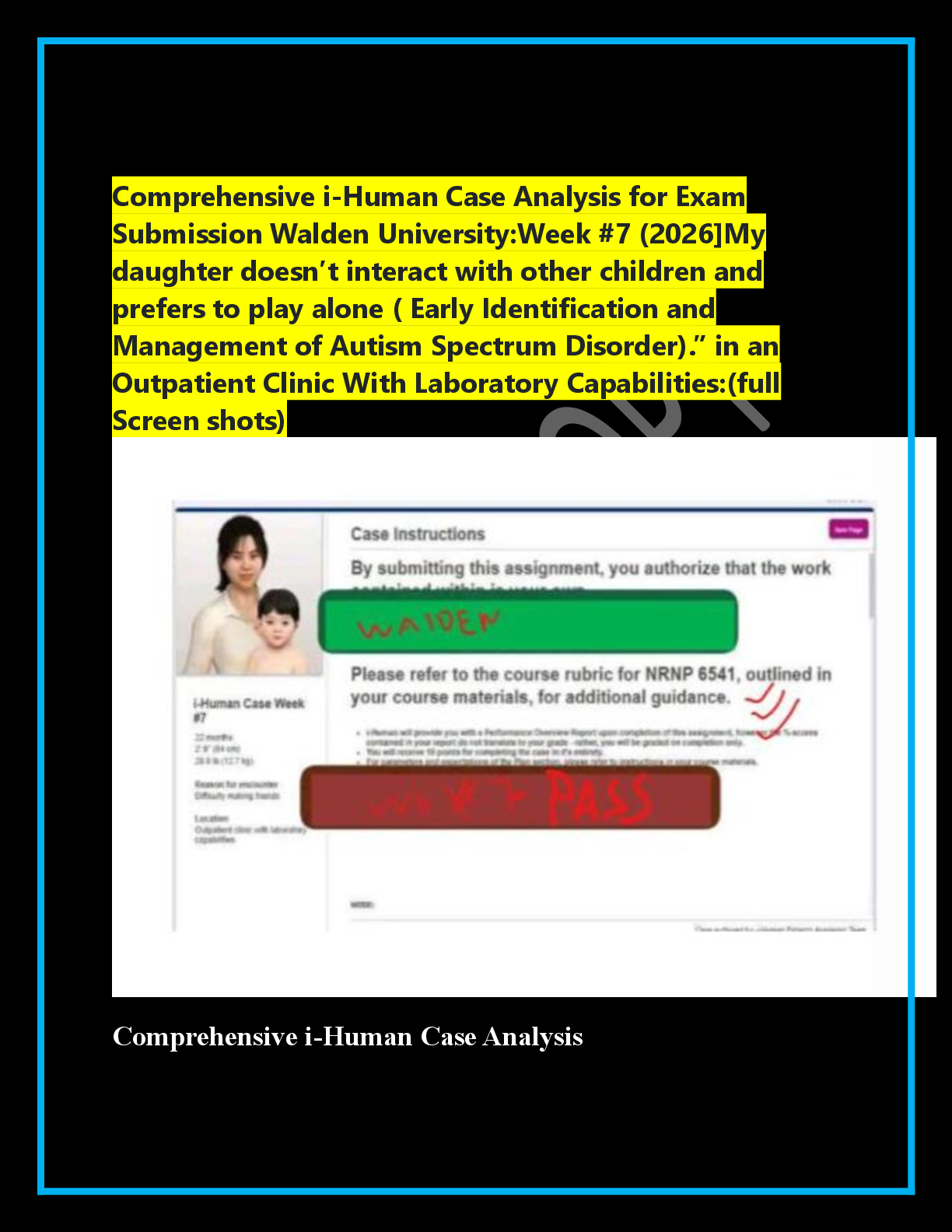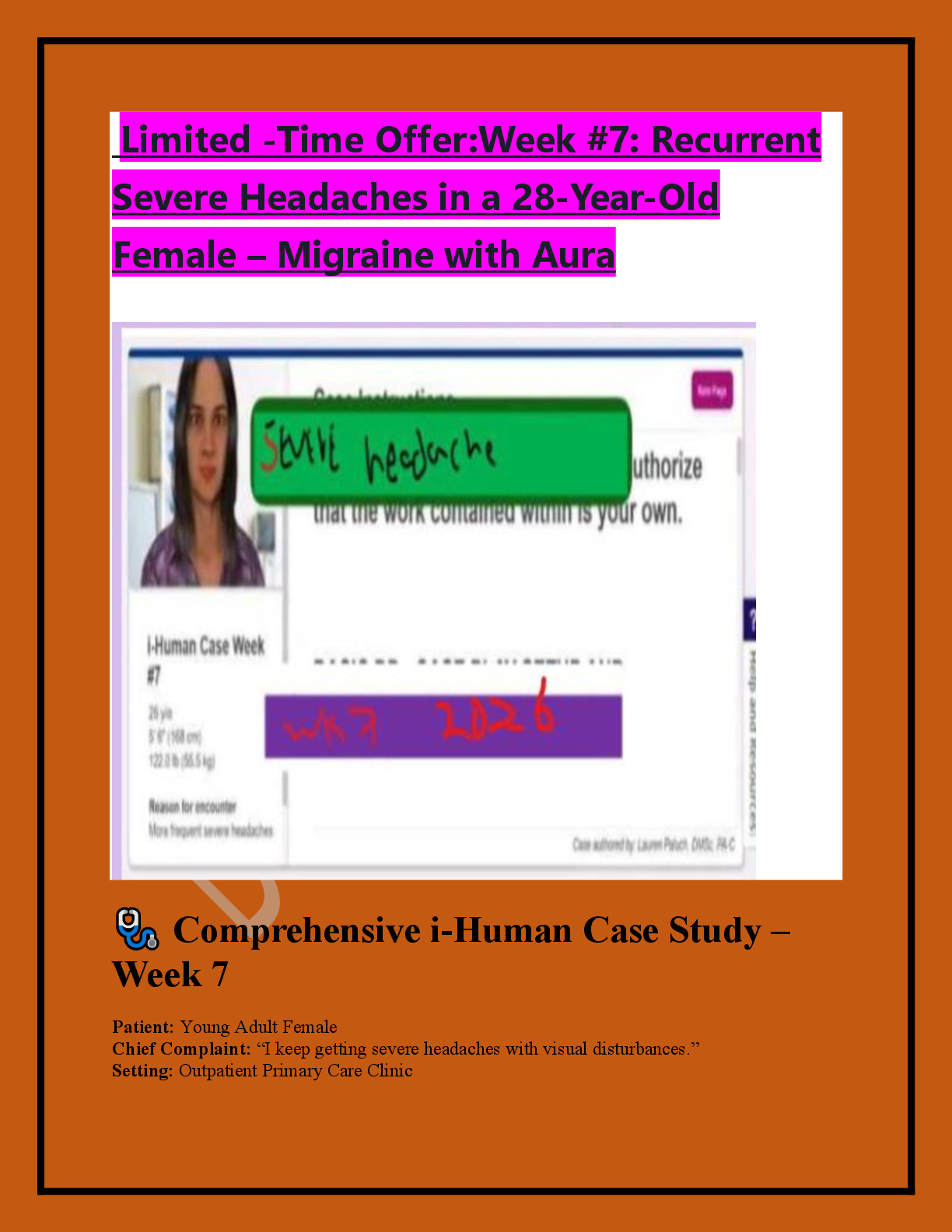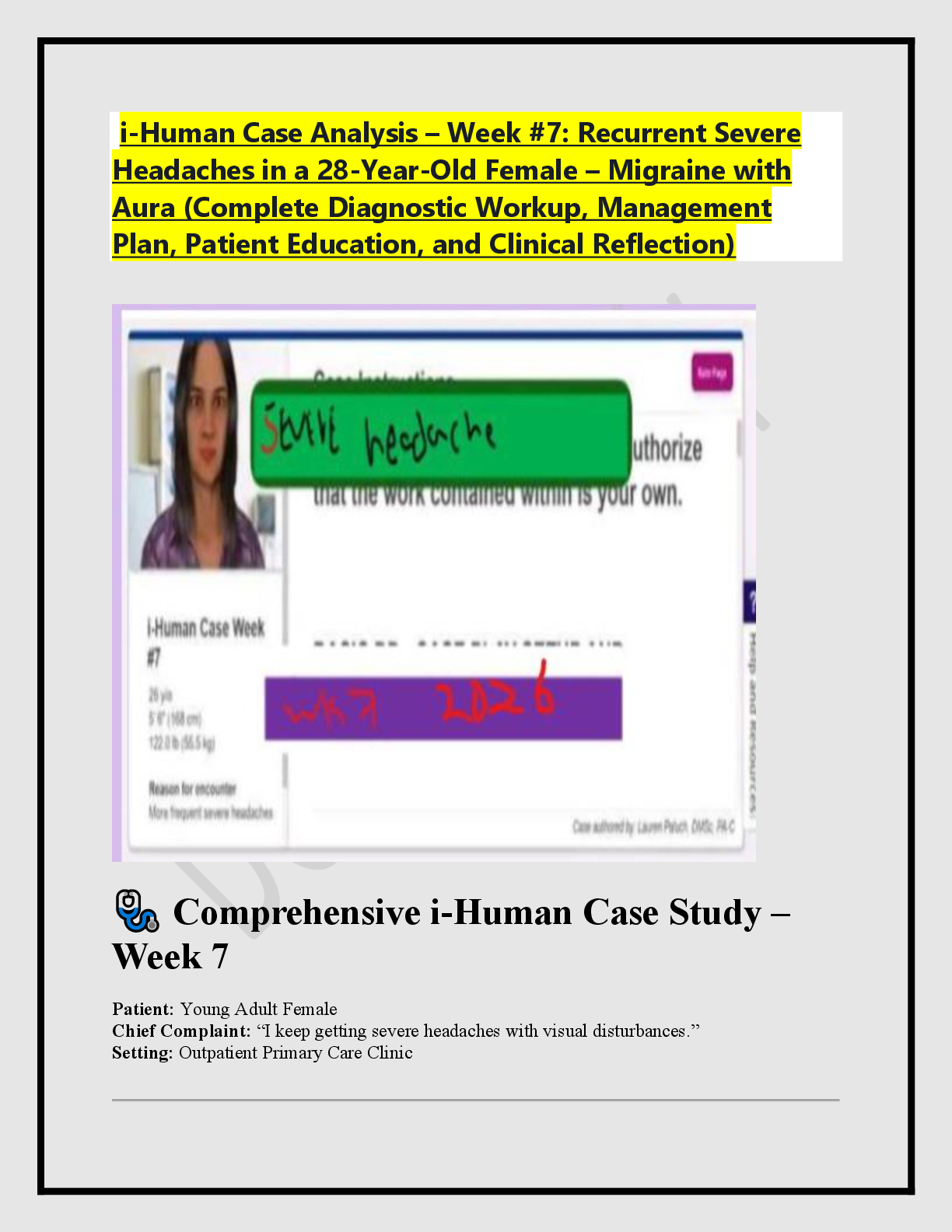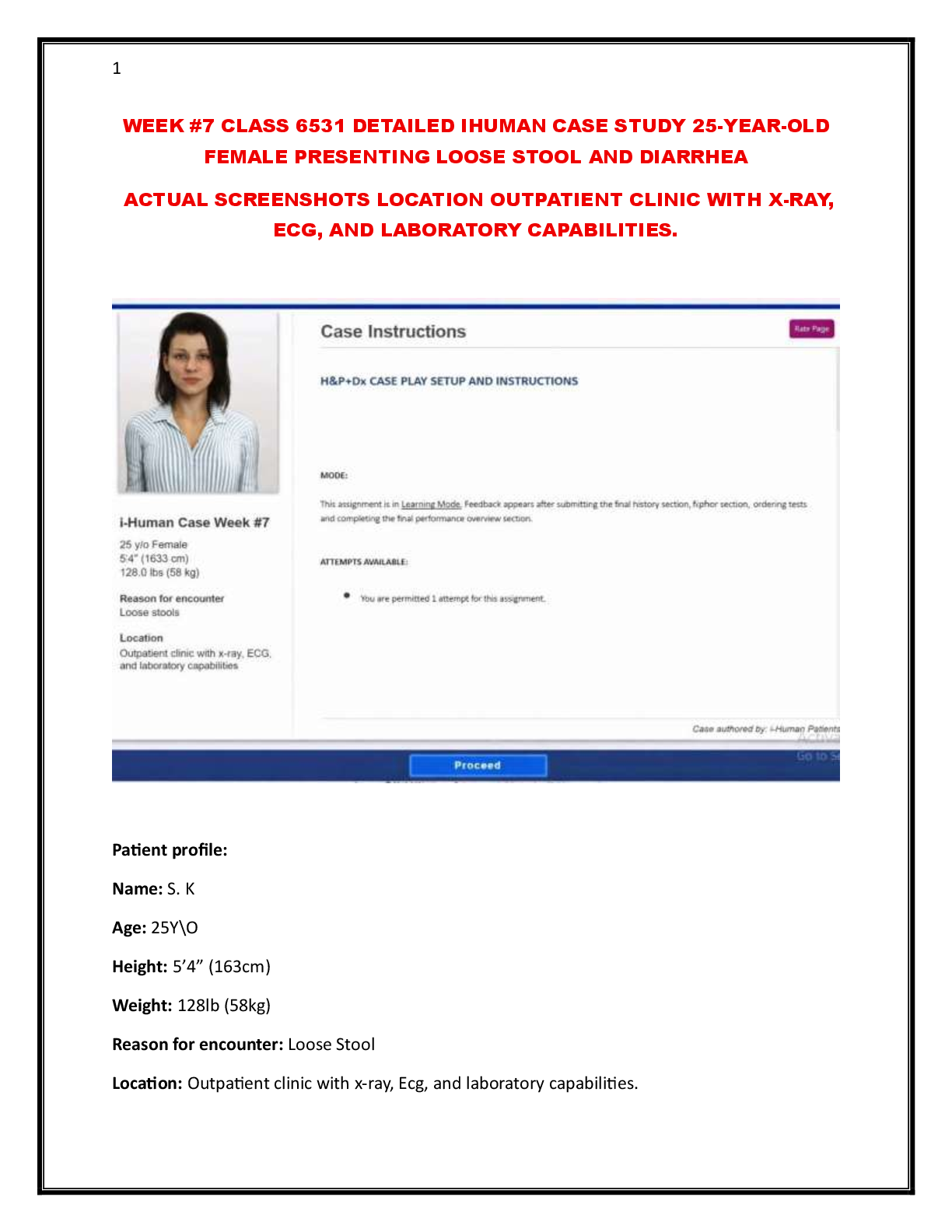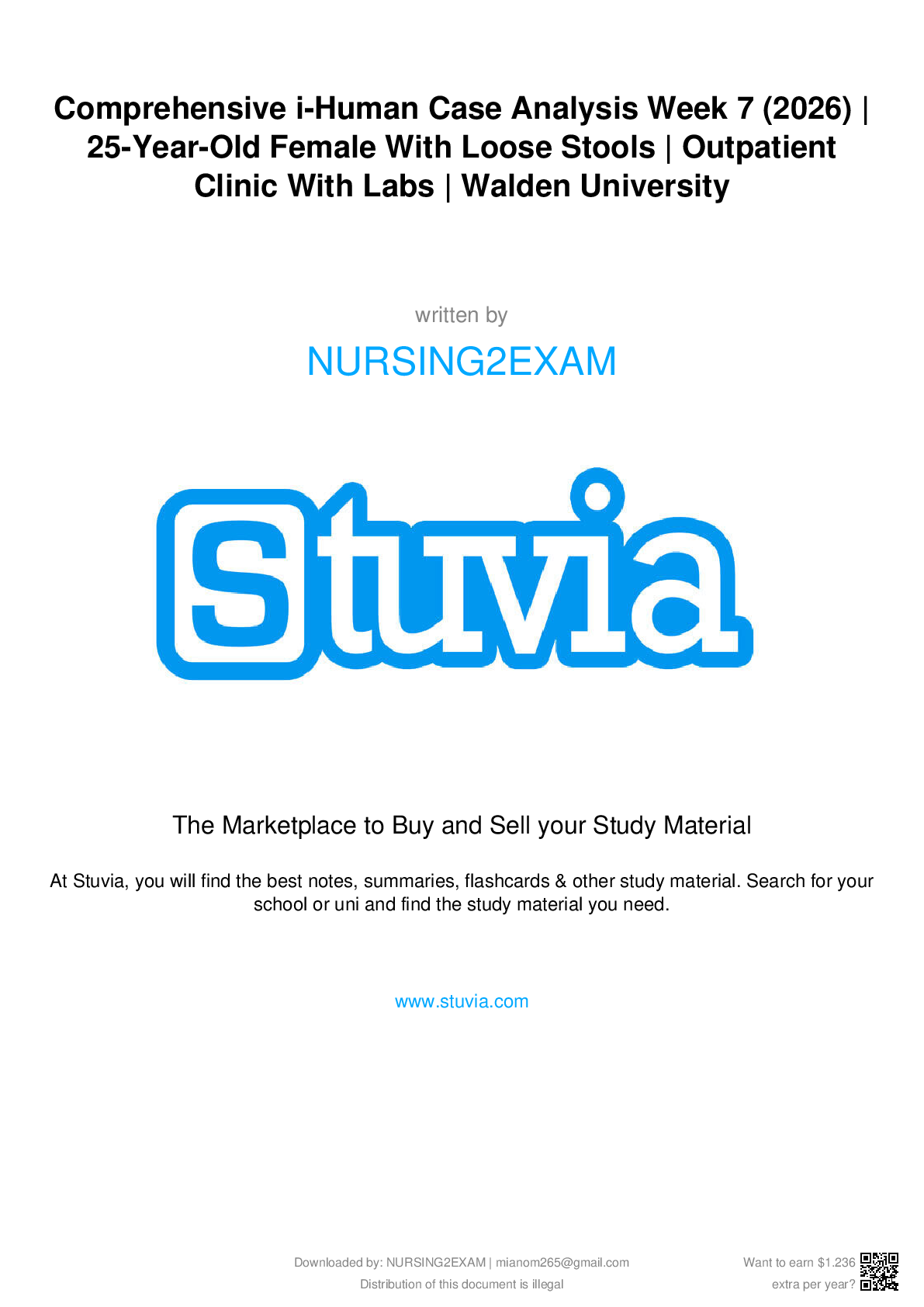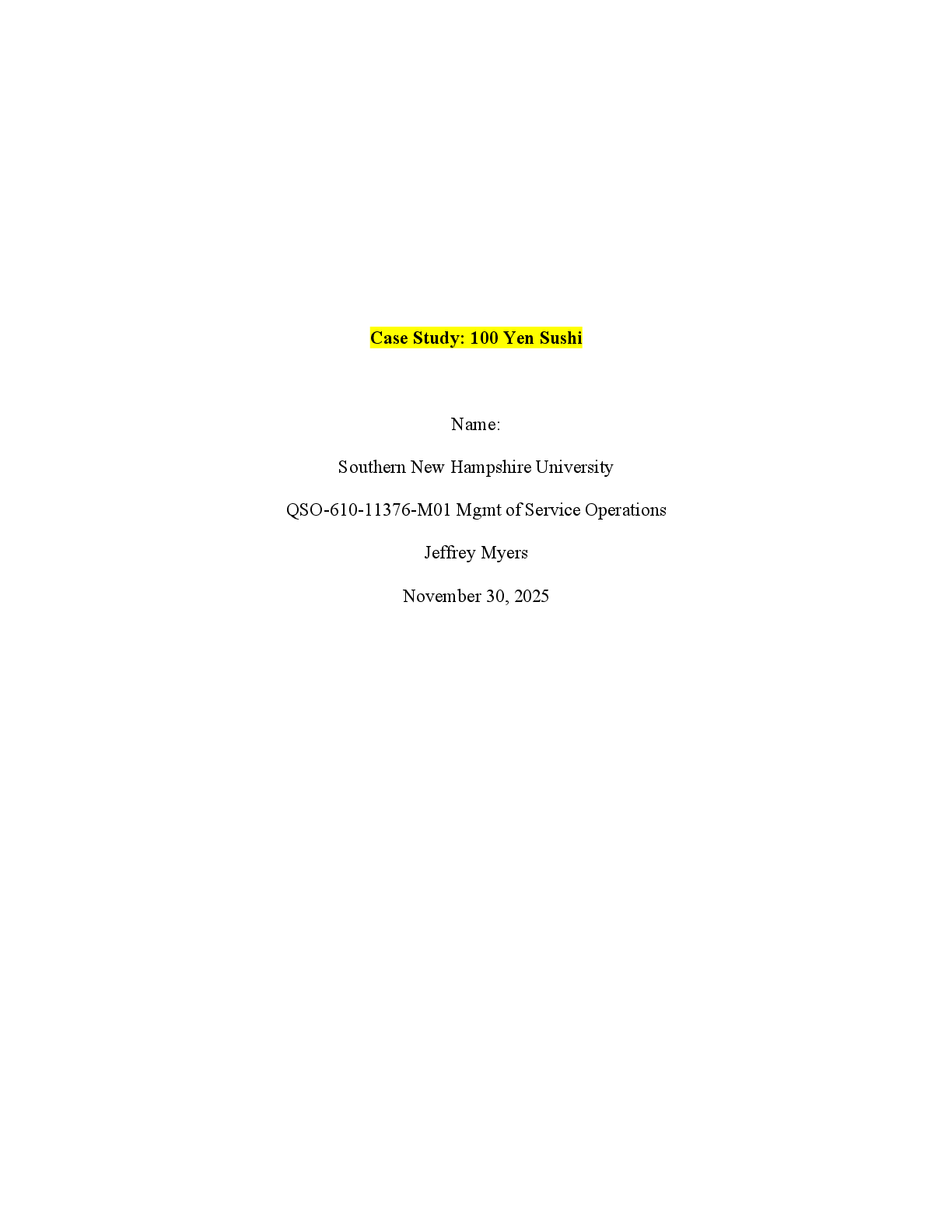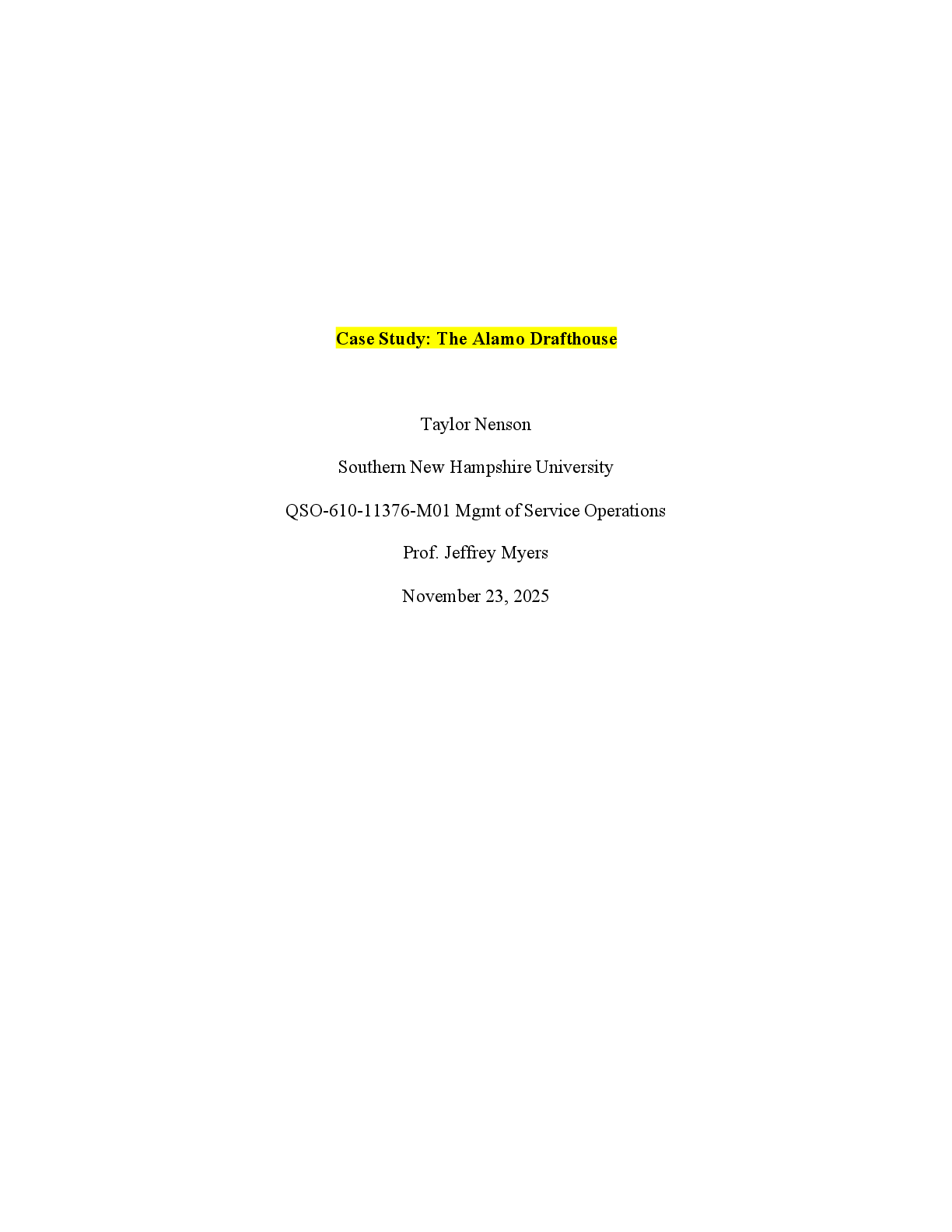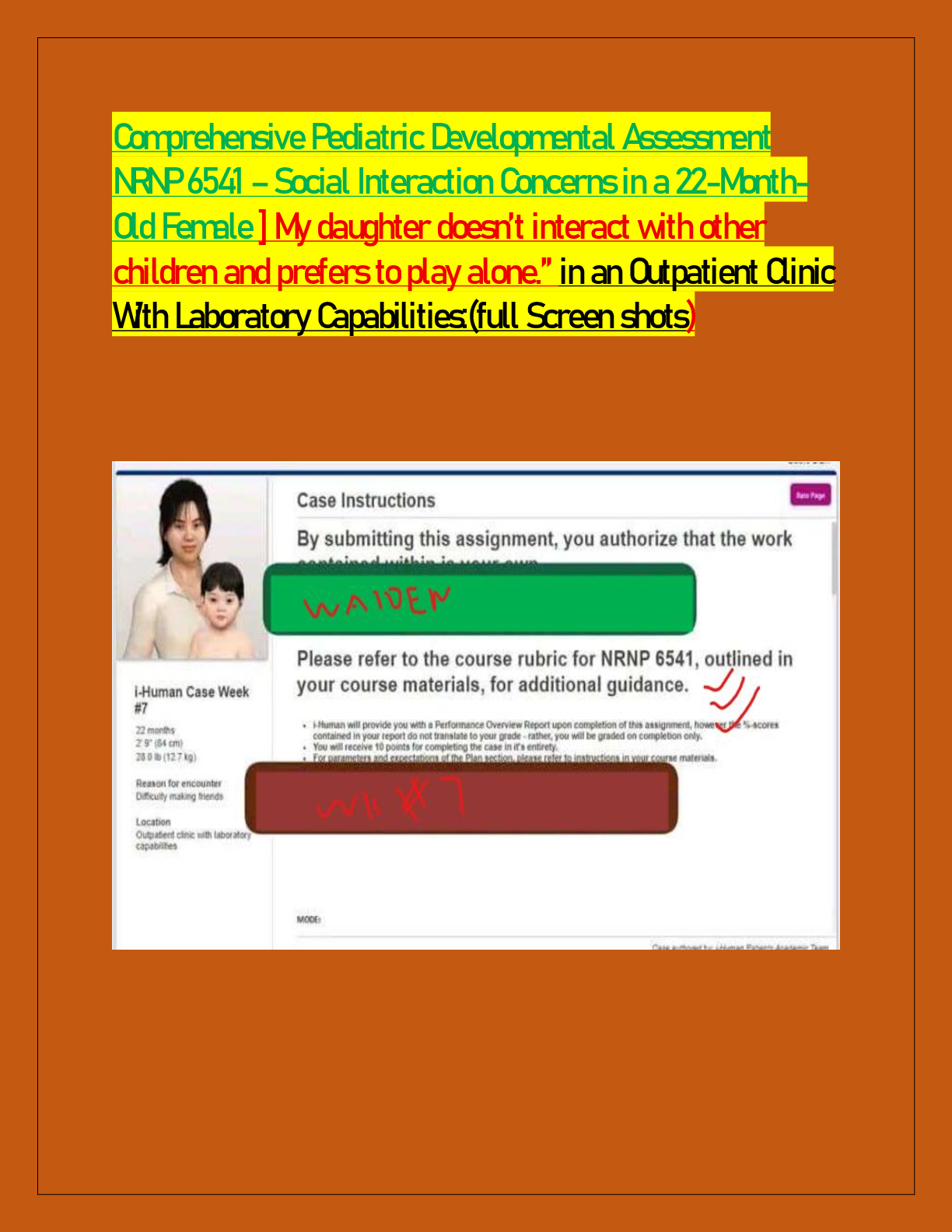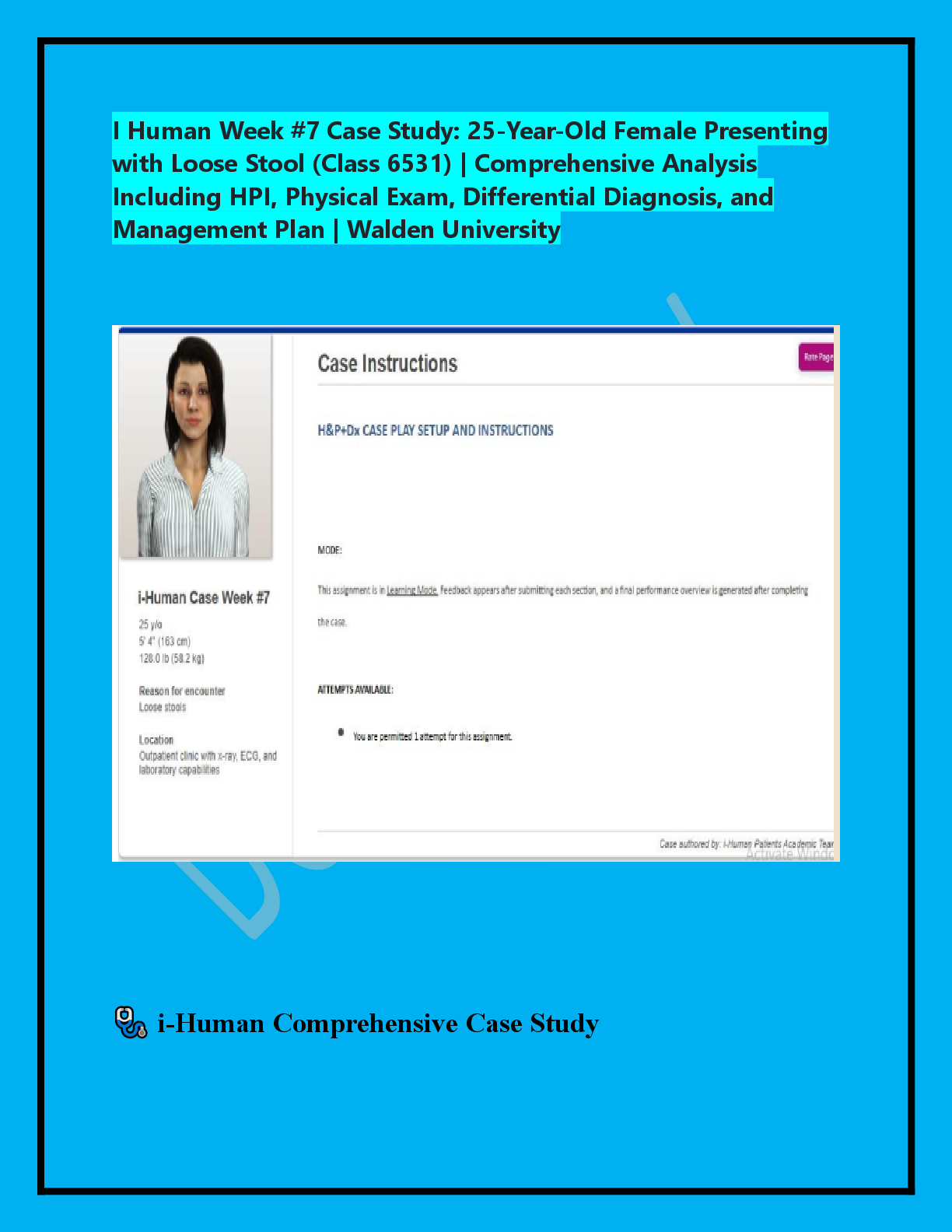*NURSING > CASE STUDY > PHI 413V Topic 3 Assignment; Case Study on Biomedical Ethics in the Christian Narrative Applying the (All)
PHI 413V Topic 3 Assignment; Case Study on Biomedical Ethics in the Christian Narrative Applying the Four Principles: Case Study
Document Content and Description Below
ApplyingtheFourPrinciples:CaseStudy Part 1: Chart (60 points) Based on the "Healing and Autonomy" case study, fill out all the relevant boxes below. Provide the information by means of bullet poi ... nts or a well-structured paragraph in the box. Gather as much data as possible. Medical Indications Beneficence and Nonmaleficence Patient Preferences Autonomy • Dialysis will relieve James elevated blood pressure and enough fluid buildup. • Due to delays, James is forced to be on dialysis and needs a kidney transplant within a year. • There is no compatible donor except for his twin brother. • Physician fully informs the parents of the medical interventions but allows the parents to use their faith. Quality of Life Beneficence, Nonmaleficence, Autonomy Contextual Features Justice and Fairness • Immediate medical treatment would have restored James' kidneys. • Because of autonomy, James must receive a kidney transplant. • Mike wonders if it is just to put Samuel through the suffering of surgery to save his brother and risk having only one kidney. • No donor was found except for his brother Samuel. Samuel will be saving his brothers' life as well as keeping his twin. • Mike is in a dilemma as he struggles with the idea of saving one of his sons and exposing the other to the possible risks of having one kidney. Part 2: Evaluation Answer each of the following questions about how the four principles and four boxes approach would be applied: 1. In 200-250 words answer the following: According to the Christian worldview, how would each of the principles be specified and weighted in this case? Explain why. (45 points) According to the Christian worldview, principle specification and weighing get determined by prior moral commitments. In beneficence, dialysis will relieve James condition. Without dialysis, his health has progressed, and James needs a kidney transplant within a year. There are no donors except for his twin brother Samuel[ CITATION Hoe18 \l 1033 ]. Beneficence is the most weighing situation because Samuel can save his brother and lose his life, or they may not survive. In autonomy, the attending physician gave respect for the parents' freedom by allowing them to use their faith[CITATION DRo \l 1033 ]. However, their faith does not have an impact on their son, so they return to the hospital. Faith is essential but some situations require medical interventions. Nonmaleficence aims at having a better quality of life. The importance of dialysis is that it will restore James kidney, although he will have temporary discomforts. James condition gets worse and now requires a kidney transplant. For James not to receive an organ, means harm to him. On the other hand, for Samuel to donate a kidney, it may bring him harm. It is essential to note this because patients must be aware of treatment results. Justice requires a fair distribution of medical benefits, risks and costs. However, who is to decide on the kidney donation? Should it be the Samuel parents or Samuel? Mike wonders 2. In 200-250 words answer the following: According to the Christian worldview, how might a Christian balance each of the four principles in this case? Explain why. (45 points) According to the Christian worldview, a Christian might balance the four principles according to what they believe. The aim is to find the highest balance of right over wrong. In autonomy, the physician will fully inform the parents on the risks and benefits. The parents will then make choices that will benefit their son because he is too young to make such decisions[ CITATION McN16 \l 1033 ]. Nonmaleficence requires that no harm gets done to anyone. Therefore, the parents should continue having faith in God and believe that within a year, they may find another kidney donor. If not, they can have their other son donating the kidney. The parents should allow the transplant because it is the only way their son will survive. Beneficence requires Christians to act on the benefit of each other. Therefore, from the Christian view, Samuel should be able to donate one of his kidney because of the compatibility in the tissues. Because he is still younger, the parents should make such tough decisions. Justice and fairness require that the patients get treated fairly, and the resources get distributed equally. From a Christian view, each patient is to must get treated with the same level of care, compassion and dignity. The physician will treat the patient to his best as expected by the parents. On the other hand, parents should make [Show More]
Last updated: 3 years ago
Preview 1 out of 5 pages
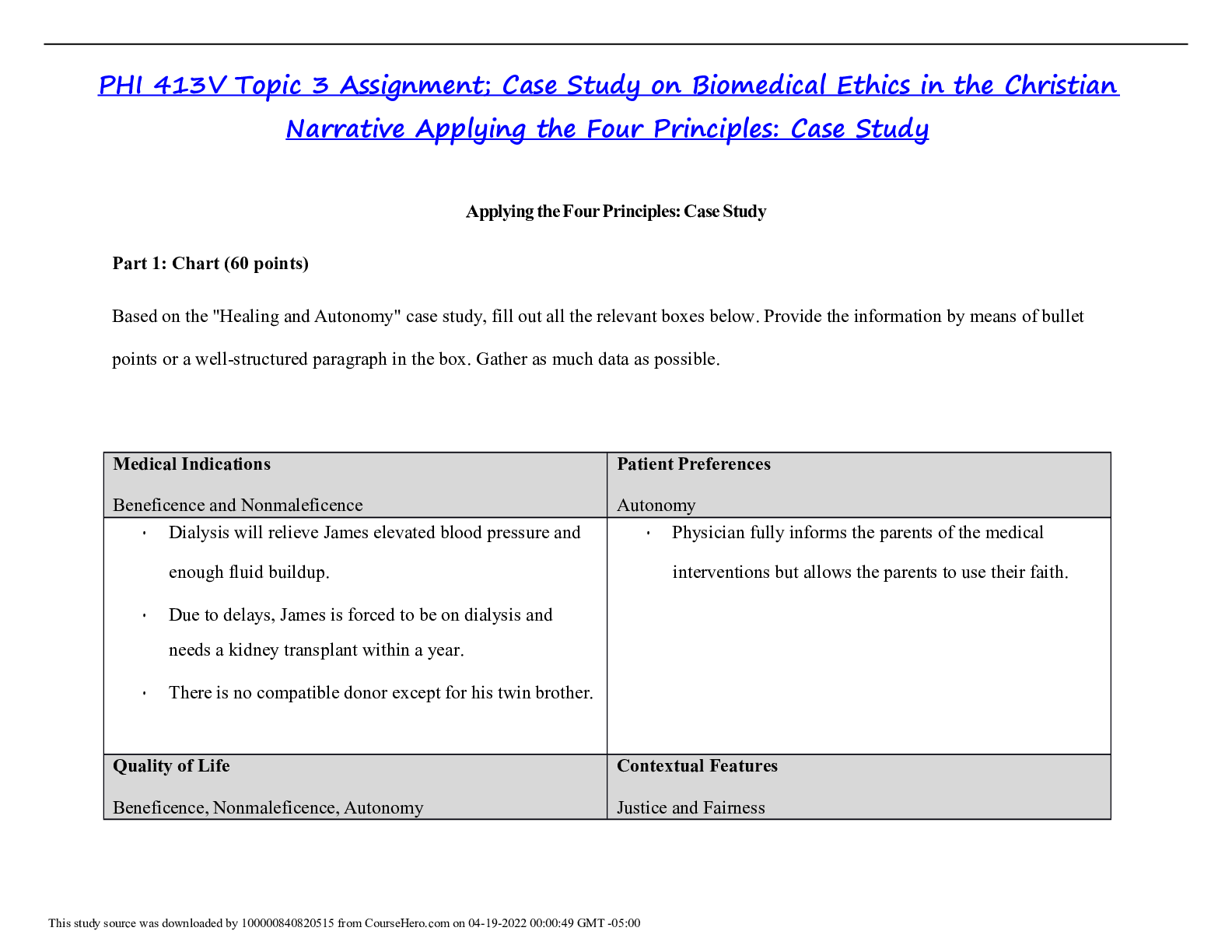
Buy this document to get the full access instantly
Instant Download Access after purchase
Buy NowInstant download
We Accept:

Reviews( 0 )
$7.00
Can't find what you want? Try our AI powered Search
Document information
Connected school, study & course
About the document
Uploaded On
Sep 21, 2021
Number of pages
5
Written in
All
Additional information
This document has been written for:
Uploaded
Sep 21, 2021
Downloads
0
Views
114




